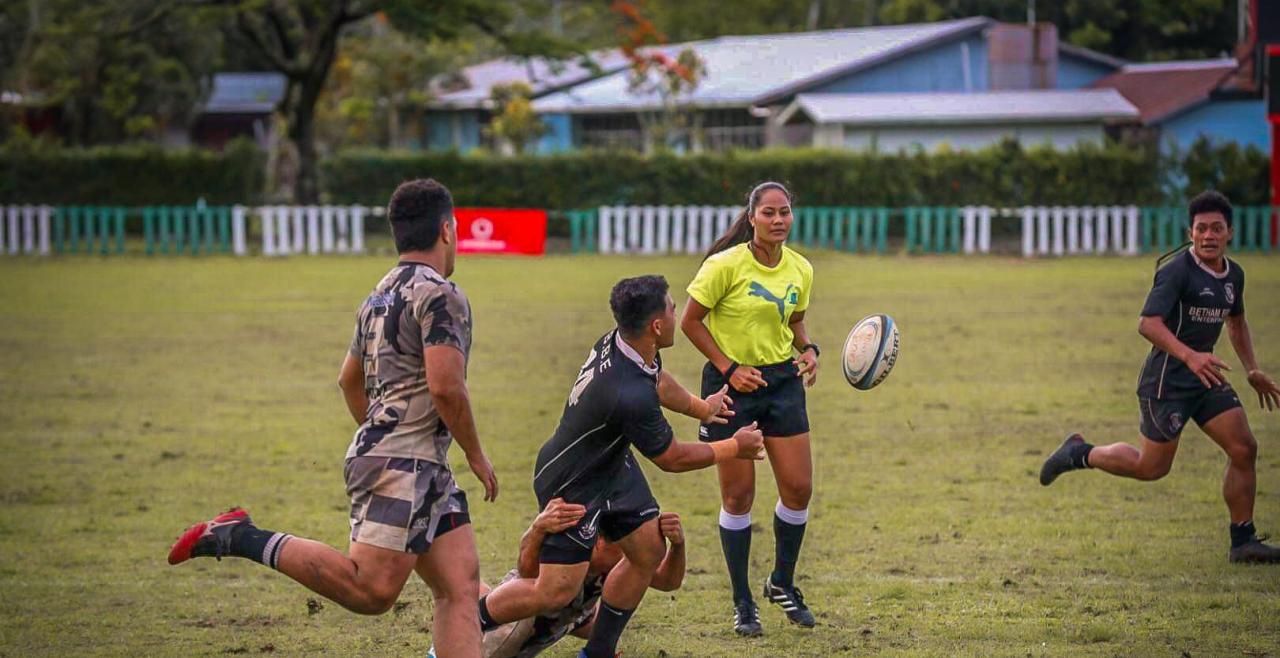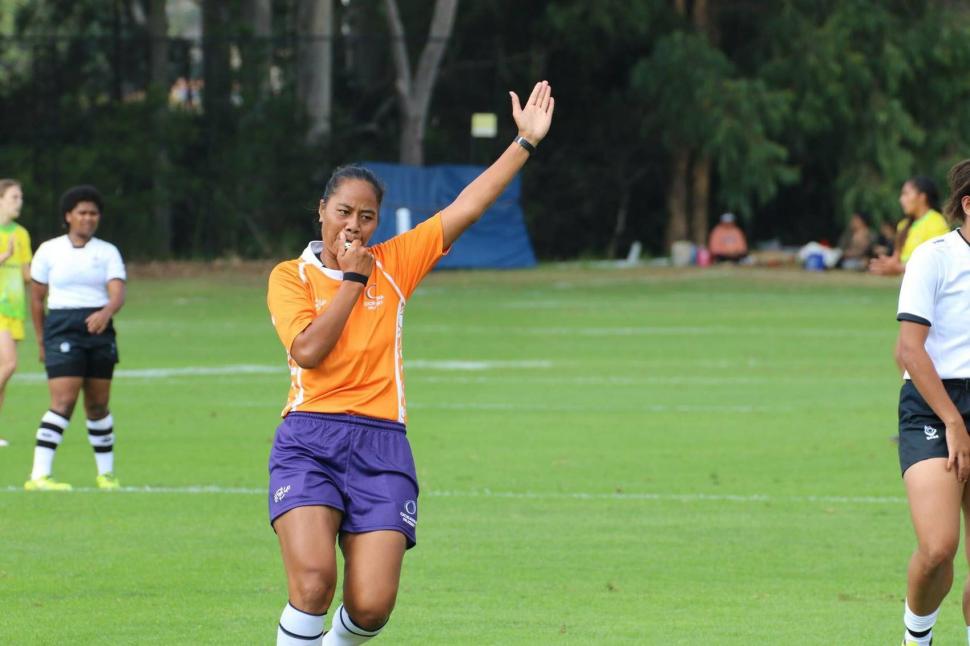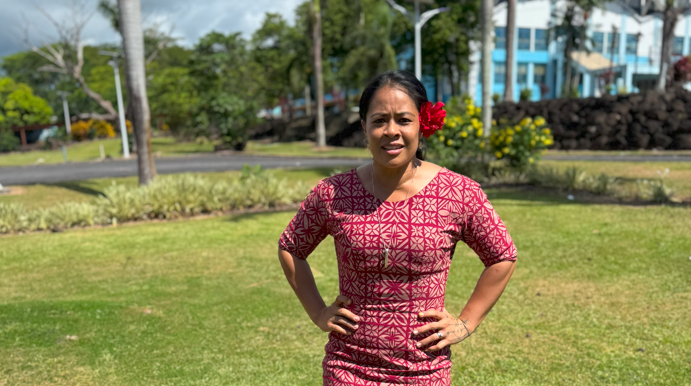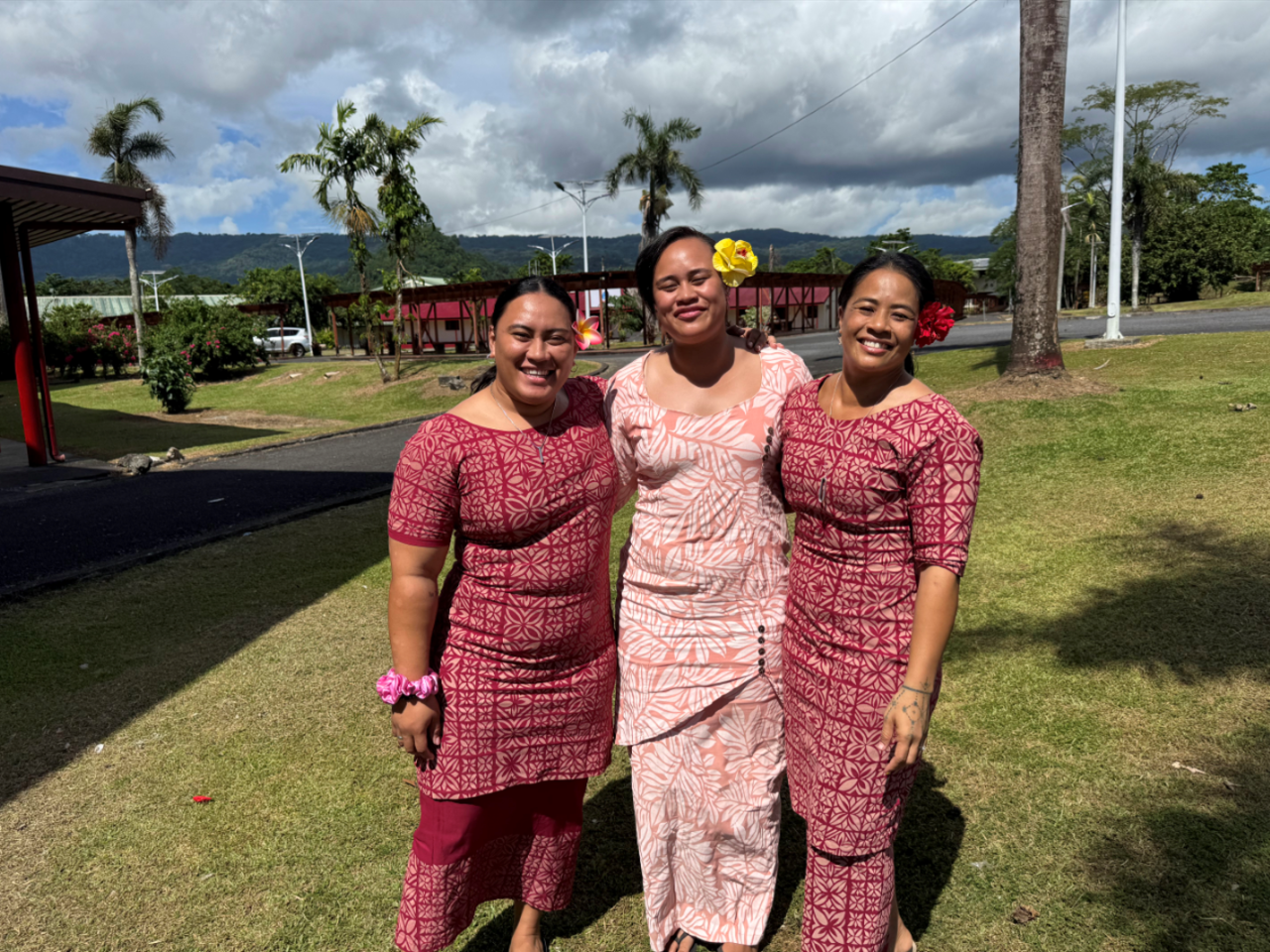Samoan athletes are tackling gender-based discrimination one match at a time

APIA, Samoa – Rugby union referee Avi'i Fa'alupega is accustomed to breaking barriers.
“To be the first-ever international female referee in Samoa… I know it's a milestone to achieve. I felt like it was an opportunity for me to be a strong icon for females in sport,” says Ms. Fa'alupega.
She was 29 when she officiated at an Oceania Sevens tournament in Fiji in 2016, the first Samoan woman to do so.
“To be on the field in a male-dominated sport is something that I'm proud of, but it's also something that delivers a good message — especially in Samoa, where everything is surrounded, built and moulded by the culture,” she says. “And the culture is basically that the girl stays home, looks after the elderly, looks after the family, nurtures the kids.”
Ms. Fa'alupega also works as the Sports Education Officer for the Samoa Association of Sports and National Olympic Committee, a partner of Spotlight Initiative. She coaches women’s rugby union, rugby league and touch rugby teams.
"When I started officiating on the international stage, that’s when the discrimination came in." - Rugby Union Referee Avi'i Fa'alupega
Ms. Fa'alupega says that as her career grew, so did the criticism.
“I didn’t get that much discrimination from people [initially]. But when I started being promoted to another level of officiating at the international stage … that’s when the discrimination came in. I could hear people shouting and calling me different names.”
“I think the most disappointing part was the initial incident when one of the head coaches from a senior men’s teams threw the ball at me while I was reporting a foul play. That’s when I experienced physical abuse.”
“As the representation of women in the sports industry continues to increase, it may be perceived as a challenge by some men,” she explains.
More than a game
Participating in sport can help break down gender stereotypes, improve girls’ and women’s self-esteem and contribute to the development of leadership and strategic thinking skills, according to UNESCO.
“I love how sport makes me feel powerful — how it makes me feel like I can achieve things,” says rugby league player Atitoafaiga Tau-Ioapo. “I just feel strong and courageous out there.”
Her teammate, Anasis Afi’a, echoes the sentiment: “Being involved in sport helped me to gain the confidence to speak. I’m not talkative… but being involved in sports, it’s a totally different world. It makes me feel safe, it makes me feel like I can become a champion for other women and girls around me.”
Yet, women and girls often face barriers to participating in sports — as players, coaches, referees, administrators and even spectators.
Gabrielle Fuatino Apelu has been representing Samoa on the world stage since she was 15. She recalls being booed when her women’s rugby union team opened for the Manu Samoa vs Georgia 15s in 1998.
Today, she is the founder and director of Apelu Sports, Samoa’s only NGO dedicated to women's sports and a partner organization of Spotlight Initiative.
“Women’s sport has come a long way from where it was 25 years ago,” says Ms. Apelu. "But at the same time, those opportunities are being underutilized… When you don’t know much about the woman athlete or the female athlete, then you can only do so much.”
"Before Spotlight Initiative, there would only be a few of us advocating for change, saying 'why isn’t there a bathroom for us?'" - Founder of Apelu Sports, Gabrielle Fuatino Apelu
She says administrators are often “passionate but lack experience” in creating inclusive sporting environments.
“For example, their way to include women is to have free entry into a tournament [for female players]. But how about putting them in a draw that allows them to play and go home before the sun sets, so that they’re able to go with family and friends, and not be left behind to find a ride after dark?”
“Before 2020, there would only be a few of us advocating for change, [saying,] why isn’t there a bathroom for us? And that was one of the first things we addressed under Spotlight Initiative,” says Ms. Apleu.
Building bridges
Ms. Apleu was part of the Spotlight Initiative Civil Society Reference Group, which she says helped build connections across Samoan NGOs working to end violence against women and girls and allowed them to share knowledge and resources.
“That networking has allowed me to broaden the reach and be more creative in how we drive initiatives,” says Ms. Apleu.
For example, Apelu Sports works with disability advocates from Nuanua O Le Alofa (NOLA), another Spotlight Initiative partner, to raise awareness on the rights of women and girls with disabilities in their workshops. They also work with another organization, SENESE, to include sign language interpreters at games.
Ms. Apleu is as ambitious as she is hopeful about ending discrimination in sport.
“There's continuous movement, but I’d like it to be quicker,” she says. “I don't want to stroll. Let’s sprint now. We’ve had 40 odd years, it’s time to rip it.”
By Anne Fullerton



